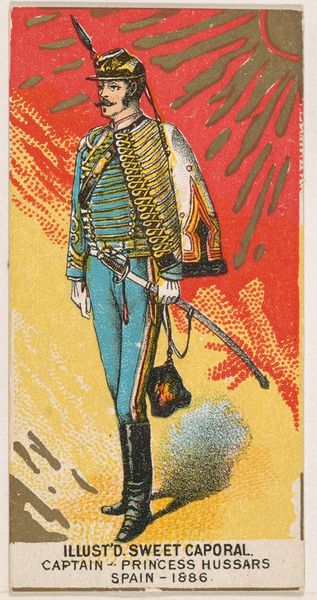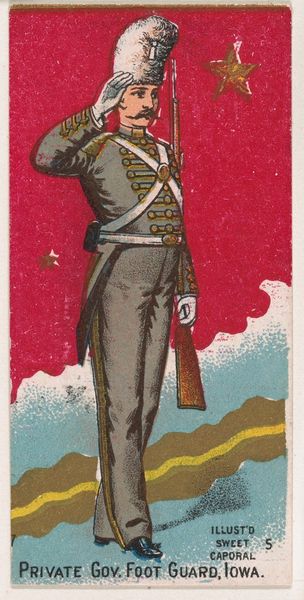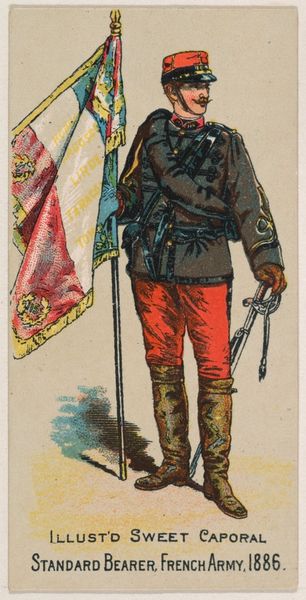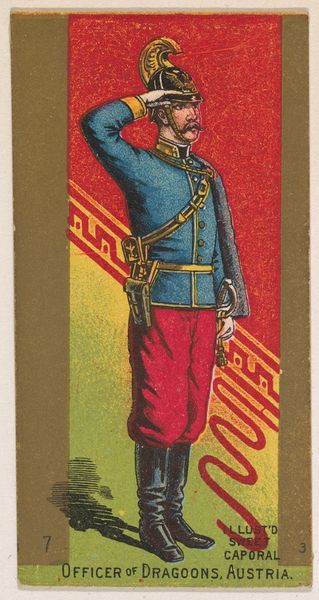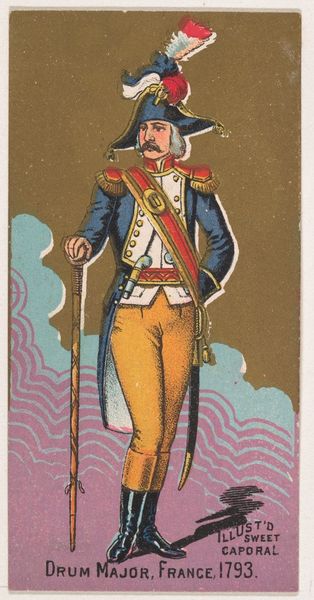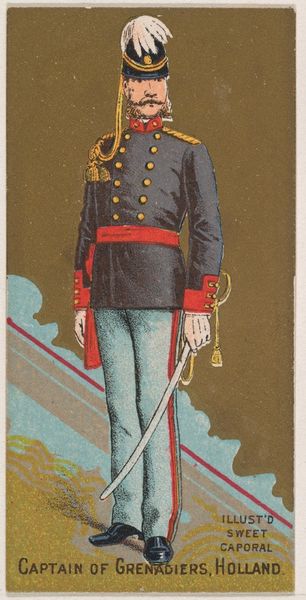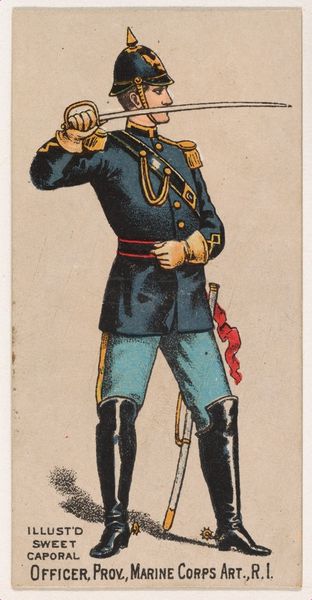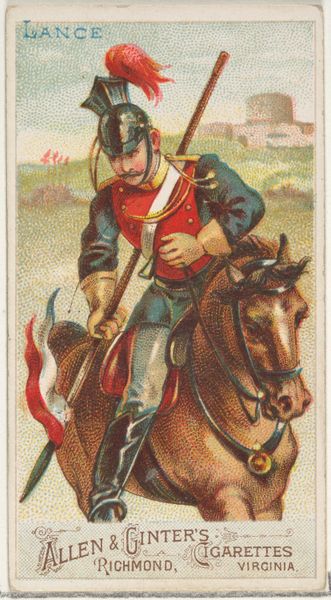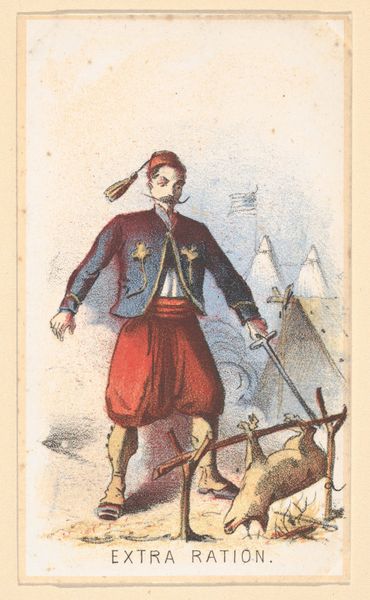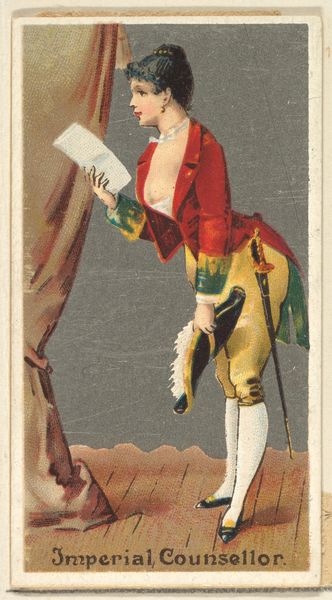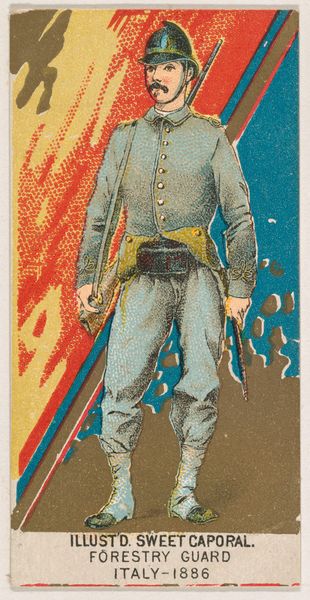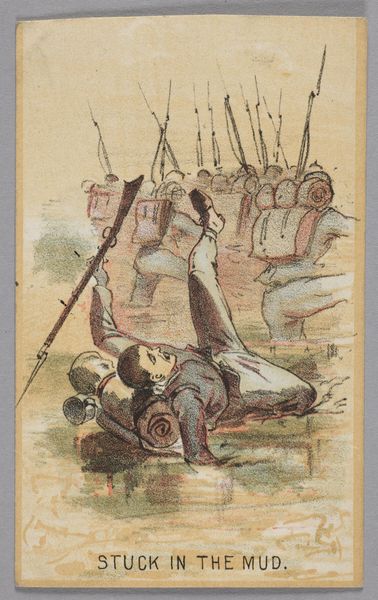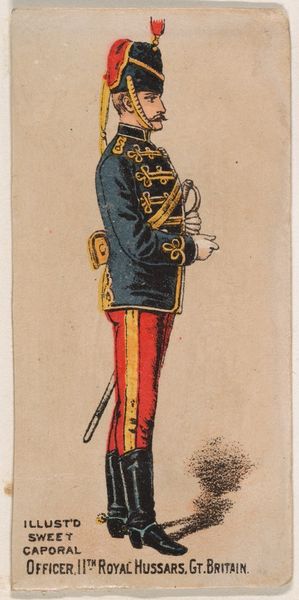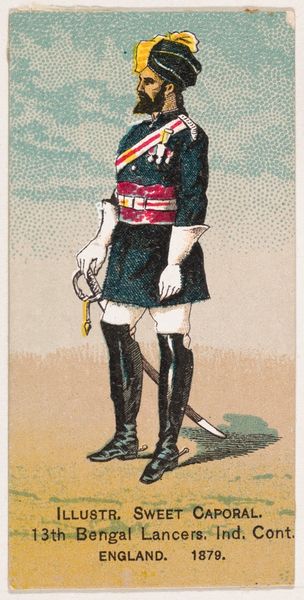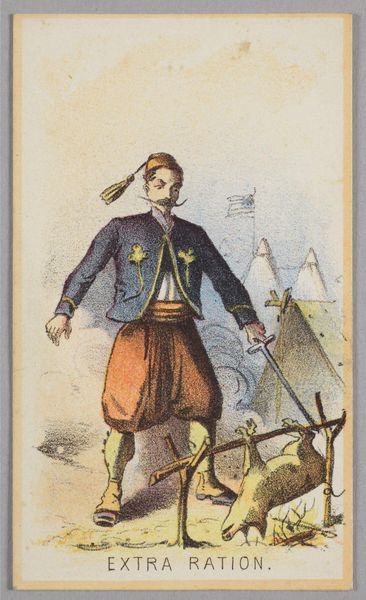
Admiral, France, from the Naval Flags series (N17) for Allen & Ginter Cigarettes Brands 1886 - 1891
0:00
0:00
drawing, print
#
drawing
#
aged paper
#
toned paper
#
water colours
#
yellowing background
#
ship
# print
#
handmade artwork painting
#
oil painting
#
coloured pencil
#
coffee painting
#
watercolour illustration
#
watercolor
Dimensions: Sheet: 2 3/4 x 1 1/2 in. (7 x 3.8 cm)
Copyright: Public Domain
Editor: Here we have "Admiral, France," one of the Naval Flags series from Allen & Ginter Cigarettes, dating from around 1886 to 1891. It's a small print, quite detailed. I'm struck by how the vibrant flag dominates the composition, almost flattening the depth of the naval scene below. What do you see as the defining characteristics of this print? Curator: Indeed, the two-dimensionality is quite pronounced, achieved primarily through color blocking and the lack of traditional perspective. Observe how the red, white, and blue of the French flag are rendered as distinct, unmodulated fields, creating a striking visual impact. Even the ship below appears stylized. Notice also the way the stippling effect mimics both sky and water. The print asks us to focus on surface and pattern. How do these design elements relate? Editor: I see your point about the surface, but what is the role of text? Doesn't it flatten out the work even further? Curator: Precisely. The inscription, "Admiral, France," functions less as a descriptor and more as an integrated graphic element. It further denies any illusionistic depth. This contributes to the work’s formal tension, a push and pull between representation and pure design. Notice that the flag in the background repeats the shape of the rectangle. What kind of rhythm do you perceive in the layering of similar forms and colors in distinct registers? Editor: It creates an echo that pulls the whole image together, tying the parts to a tight whole. Curator: Precisely. Now, let's consider what this artwork has revealed about relationships between form and function in late nineteenth-century commercial art. Editor: It’s amazing how much one can see by looking so closely. I will start there in the future.
Comments
No comments
Be the first to comment and join the conversation on the ultimate creative platform.
